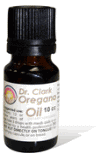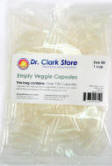|
|
|
Oregano Oil
| |
|
Oregano Oil (Origanum vulgare) is a natural substance derived from wild Oregano. The plant grows in remote mountainous regions free of pollution. Only the leaves of the flowering plant are used. The oregano oil is extracted by means of a completely natural process. No chemicals or solvents are used. The extracted oregano oil is the source of virtually all of the plant's primary active ingredients, thymol and carvacrol. What is sold in most traditional grocery stores as oregano is not wild Mediterranean oregano. It has little preventative or therapeutic value. Real wild Mediterranean oregano is of two varieties. Thymus capitatus is the variety that grows in Spain. Most of the oregano that grows throughout the rest of the Mediterranean is the origanum vulgare variety. In order to obtain the health benefits of oil of oregano, the oregano must be of one of these two varieties. Oil of oregano is a potent antiseptic and is effective for killing a wide range of fungi, yeast and bacteria, as well as parasites and viruses. It has a wide variety of uses: digestion, colds, warts and boils, gum diseases; as an anti-fungal, oil of oregano may be beneficial in such diseases as psoriasis, eczema and seborrhea, as well as many chronic ear, sinus and lung problems that are caused by fungus. Oil of oregano's active ingredient, carvacrol, was found to completely kill candida yeast. Viruses, such as those that cause shingles, cold sores and genital herpes are also killed by oil of oregano. Mexican research showed that oil of oregano even killed Giardia, a parasite that is difficult to kill. The oil is also an immune system stimulant. Polish researchers did a comparative study of some 40 herbs. Only one, wild oregano, dramatically stimulated the immune system, which was measured by increased cellular levels of interferon. Other ingredients found in Wild Oregano
Interferons (IFNs) are natural proteins produced by the cells of the immune system of most vertebrates in response to challenges by foreign agents such as viruses, bacteria, parasites and tumor cells. Interferons belong to the large class of glycoproteins known as cytokines. Interferons assist the immune response by inhibiting viral replication within other cells of the body. http://en.wikipedia.org/wiki/Interferon
Uses: apply sublingually, topically, or in juice or water. May also be added to foods for a spicy and healthy effect. An unusual use, and one that is important during disasters or camping, is that oil of oregano is good for sterilizing water. For water purification, it has been found that a concentration of 1:4000 will sterilize septic water. For internal use: add a few drops of Oil of Oregano to juice or water. For larger amounts, fill a small gelatin capsule. Take one or two capsules daily with meals. For topical use: apply directly to the affected area once or twice a day; use more often if necessary. (It will sting for a while!) If rash or irritation occurs, discontinue use. Oil of Oregano is a peppery spice, so for genital regions you may experience significant burning or heat unless a few drops of the oil are diluted in a teaspoon of extra virgin olive oil.
Oil of Oregano is a little heard of “miracle worker”. We urge you to read more about it.
| |||




 Oregano
Oil
Oregano
Oil

 100
Veggie Caps - $9.95
100
Veggie Caps - $9.95